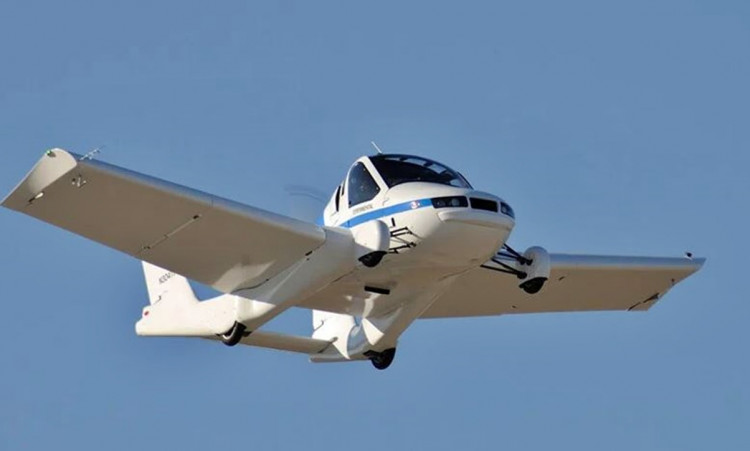Makers of a winged car capable of flight are closing operations on the U.S. East Coast and headed to China to cut costs as they hope to return to U.S. skies with likely changes and regulatory approval already in hand.
Terrrafugia, founded in 2006 by graduates of the Massachusetts Institute of Technology, was bought in July 2017 by China automaker Zhejiang Geely Holding Group, which also owns Volvo, Lotus Cars and British taxi maker London EV Company.
Its abrupt U.S. shutdown came only three weeks after the company was granted a Special Light-Sport Aircraft (LSA) airworthiness certificate for its Terrafugia Transition, roadable aircraft by the U.S. Federal Aviation Administration (FAA). But bleak sales prospects for the Transition, which carries a hefty price tag of $400,000, is said to have led to the layoffs and the decision to transfer operations to China.
The certificate means the Terrafugia Transition is now legal for flight in the U.S. Its roadworthiness certification is pending with the National Highway and Traffic Safety Administration (NHTSA) but is expected in 2022.
In the meantime, Geely might also be able to more easily certify the Transition for road use in China if it can see a commercial path against cheaper and easier to make eVTOL (electric vertical take-off and landing) passenger aircraft for the U.S. market.
Geely is continuing work on a successor model, the TF-2A, but only in China. Terrafugia's intellectual property and further development of the Transition are being moved to China by Geely.
Former Terrafugia employees and a Terrafugia supplier said "over 100 people were walked off (Terrafugia's campus) and told there would be arrangements made so they could retrieve their stuff," according to Forbes, citing Peter Schmidt, COO of hybrid VTOL aircraft startup Transcend Air.
"The Transition is too expensive with too limited utility to really find any significant sales here (in the U.S.)," noted Schmidt.
Signs of trouble came to the fore in 2019 when Terrafugia closed its San Francisco, California research and development office, which was developing the concept and design for the TF-2 eVTOL tiltrotor urban air mobility (UAM) project.






